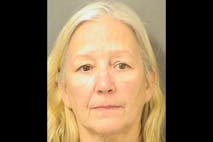
Thousands of South Korea schools close as birth rate plummets
Cassy Cooke
·
Judge blocks Wyoming’s pro-life law restricting abortion drugs
On Thursday, a federal judge placed an injunction on Wyoming’s law restricting abortion pills, temporarily halting it from taking effect.
The law, which protects all preborn children from chemical abortions, was signed by Governor Mark Gordon in March and was set to take effect July 1. Per the law, it would be illegal to “prescribe, dispense, distribute, sell or use any drug for the purpose of procuring or performing an abortion.” Anyone found guilty of violating the law, except the pregnant woman, would be charged with a misdemeanor, punishable by up to six months in prison and a $9,000 fine.
Judge Melissa Owens of Teton County District Court placed the temporary block on the law in response to a lawsuit filed by four pro-abortion women and two non-profit organizations, noting that the plaintiffs “have clearly shown probable success on the merits and that at least some of the plaintiffs will suffer possible irreparable injury” should the ban be implemented.
Earlier this year, Owens placed an injunction on a separate state law that would protect nearly all preborn children from abortion. In that ruling, she said it was unclear whether or not abortion is healthcare. “The state can not legislate away a constitutional right,” she said in her oral decision. “It’s not clear whether abortion is health care. The court has to then decide that.”
Article continues below
Dear Reader,
In 2026, Live Action is heading straight where the battle is fiercest: college campuses.
We have a bold initiative to establish 100 Live Action campus chapters within the next year, and your partnership will make it a success!
Your support today will help train and equip young leaders, bring Live Action’s educational content into academic environments, host on-campus events and debates, and empower students to challenge the pro-abortion status quo with truth and compassion.
Invest in pro-life grassroots outreach and cultural formation with your QUADRUPLED year-end gift!

The question of whether or not abortion can be considered health care also played into Thursday’s ruling. Jay Jerde, a special assistant attorney general for Wyoming, argued that there is no medical reason a woman would need the abortion pill, saying, “getting the abortion doesn’t implicate health care because it’s not restoring the woman’s body from pain, physical disease or sickness.”
“Medical services are involved,” Jerde said, “but getting an abortion for reasons other than health care, it can’t be a medical decision.”
Owens disagreed with this assessment. “Essentially the government under this law is making the decision for a woman, rather than the woman making her own health care choice, which is what the overwhelming majority in Wyoming decided that we should get to do,” she said.
Live Action News is pro-life news and commentary from a pro-life perspective.
Contact editor@liveaction.org for questions, corrections, or if you are seeking permission to reprint any Live Action News content.
Guest Articles: To submit a guest article to Live Action News, email editor@liveaction.org with an attached Word document of 800-1000 words. Please also attach any photos relevant to your submission if applicable. If your submission is accepted for publication, you will be notified within three weeks. Guest articles are not compensated (see our Open License Agreement). Thank you for your interest in Live Action News!

Cassy Cooke
·
International
Cassy Cooke
·
Issues
Bridget Sielicki
·
Issues
Angeline Tan
·
Issues
Nancy Flanders
·
International
Angeline Tan
·
Issues
Bridget Sielicki
·
Human Interest
Bridget Sielicki
·
Analysis
Bridget Sielicki
·
Politics
Bridget Sielicki
·
Issues
Bridget Sielicki
·